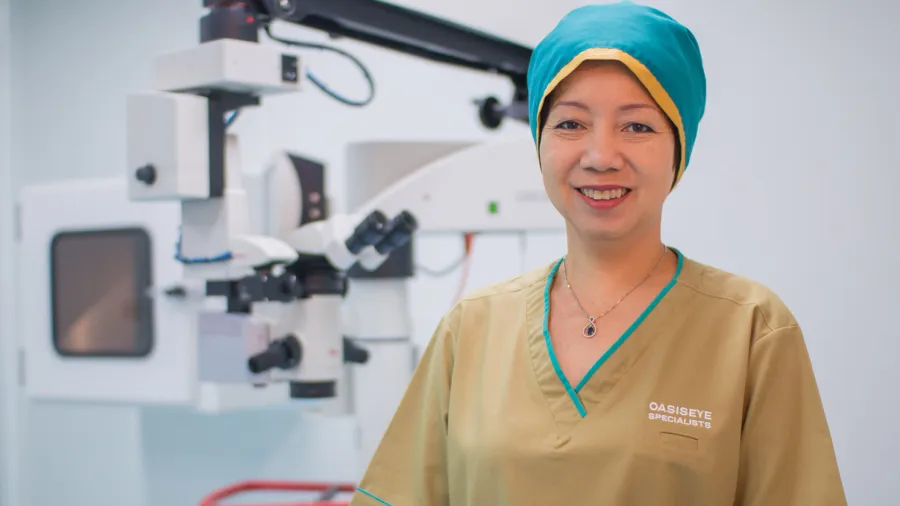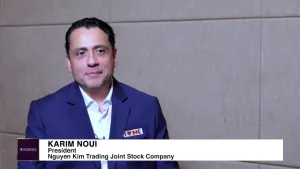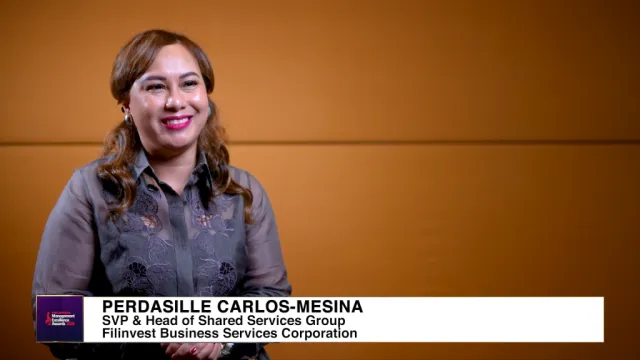
Malaysian eyecare clinic zooms into boutique centres to elevate services
OasisEye Specialists deployed AI screening machines to remote areas where doctors are scarce.
Three ophthalmologists from Malaysia set their vision to operate a clinic in January 2020, days after getting a licence from the government. Little did they know that, in just a few weeks, a new fatal virus would infect people globally and interrupt business and healthcare operations. Instead of closing up the shop, the doctors of OasisEye Specialists decided to focus on opening boutique eye centres in northern, southern, and central Malaysia to cater to emergency eye care needs.
It currently has three operating centres: OasisEye Kuala Lumpur, which is the main clinic, in Nexus Bangsar South; OasisEye Johor Bahru in Beletime Danga Bay, Country Garden; and OasisEye Seremban at Seremban 2.
Since it is a specialty clinic, OasisEye Specialists was able to invest in technology and partnerships specific to the improvement of its eye care services. One of the notable innovations is artificial intelligence (AI) which helps detect risks of patients' retinal ailments.
Here is Healthcare Asia’s interview with Dr. Khaw Hoon Hoon, one of the board directors and founders of Malaysian-based OasisEye Specialists, wherein she discussed their boutique centres and strategies.
What are the goals and principles that guide you and your colleagues to give eye care services to your patients?
I've been practising as a clinician since 2003. For the last 20 years, medical services have evolved. From big hospitals to private hospitals, and now, we have what we call the ambulatory care centre.
What we're doing is a daycare centre, where patients come in, get their treatment, and get discharged immediately after a few hours.
It’s very much a boutique centre. It is the trend now, in the medical field, if you look around Singapore, Hong Kong, and even worldwide. We are not into bigger hospitals now, where there are multi-disciplines addressing ailments from head to toe.
We have deconstructed the hospital into boutique centres. We have concentrated on ophthalmology—when the organisation is smaller, customer service becomes the priority.
Our centre is patient-centred and comprehensive, where we get the chance to utilise our best technology and be able to provide personalised care to patients at an affordable cost.
So how do we do that? It's very easy: Get a group practice, where within the centre, for example, in Bangsar South, we have 10 practising ophthalmologists. The doctors here, we share all the same equipment and machinery. Therefore, we can afford to buy the best technology that we have. Patients get it at a fraction of the price for every cost for us to recoup back our return on investment.
As a group, we offer multidisciplinary care. We have retinal surgeons, glaucoma surgeons, and paediatric, oculoplastic, and refractive surgeons. When we are sub-specialising in various components of our eyes, we are able to serve our patients better.
Patients have more quality care, instead of just a doctor or ophthalmologist treating the eye from front to the back so that's the purpose of our group being subspecialised.
What are the innovations, technology, and programs that OasisEye Specialists are doing right now?
We have artificial intelligence, which is replacing a lot of medical services that we have. For us, we also use this artificial intelligence grading software so that we can take a photograph of the patient’s eye and the artificial intelligence software will diagnose the severity of the disease. With this, a doctor does not need to be present.
How important is all this? Where there is a large remote area where doctors and ophthalmologists are not accessible, all these machines will be dispersed to all these small remote centres. We can do retinal screening and take photographs of the eye, especially for diabetic patients, glaucoma patients, or age-related macular degeneration patients.
These machines are deployed to those areas, then photographs are taken and the AI will ”grade” them, diagnose them, and identify those diseases to be referred to fellow ophthalmologists.
We also have the subthreshold retina laser treatment for central serous retinopathy, glaucoma, and diabetic macular edema. We are also doing selective laser trabeculotomy and, of course, selective laser trabeculoplasty for glaucoma patients. All these things utilise a type of laser machine.
We became a reference centre for these Quantel medical laser machines for the Asia Pacific training region so, we assist all these companies to do the testing of their machines.
We do the wide field retinal angiography where we also became a reference centre for this Nikon Training and Research Centre. Nikon is very good at photography. Through the pupil that we have, we can take the photograph of the retina for patient education, academic purposes, and our research, amongst others.
You may have heard of radiofrequency therapy. Ours is slightly different. We call it Tixel, high-intensity heat therapy, to be used to treat dry eyes. Oddly, with the pandemic and everything, dry eyes have become very common. Because of intense computer use, a lot of patients are coming in.
Can you walk us through the OasisEye Specialists’ business, when it implemented AI? How did this help increase the number of patients?
This is still in a very early stage where we are testing out. We put this machine currently at one of the other centres where we do the screening without the presence of the doctor. The optometrist will be there, handling the patients, and the machines’ software will read out the results of the eye and guide the optometrist to explain it to the patient.
If this is successful, we will have plans to deploy this machine to as many places as we can to assist in diagnosing and managing patients, especially with retinal issues, like diabetic retinopathy.
Diabetes is a very major issue in our country. People tend not to go to the hospitals because of the pandemic, so the only way is, we have to bring all this technology to them. We are working towards that direction so we don't expect patients to come in. We expect to serve the patient, and bring the technology to them, without the doctors having to be present.
The clinic was founded in 2018. Why did it only start operations in 2020, three months before the pandemic?
We, the founders of the company—Dr. Kenneth Fong, Dr. Manoharan Shunmugam, and I—have been operating since 2018. To construct a big centre like this, you need at least about two years of planning construction licence applications. We officially got the licence on the 31st of December 2019.
It took us three years to start off our main centre, which is currently located in Bangsar, Kuala Lumpur. That's when we are operational and, after that, the lockdown came in. But because we are in the field of medicine, we are considered one of the essential services, we did not shut down. We were not allowed to shut down because we still had to attend to our patients.
There are various kinds of patients. There are patients who come in for a non-urgent case. Those patients are definitely reduced. However, we still attended to emergencies.
How has the pandemic affected us? First, with the reduced working hours during the lockdown, not to mention the staff who had to be quarantined after getting infected with the COVID-19, we reduced the number of staff.
Then, the number of non-urgent cases, like cataracts, dropped. What sustained us throughout the pandemic are the number of emergencies that we have to attend to. We were open throughout, we attended to various kinds of ocular emergencies as simple as conjunctivitis.
People press the panic button, and people with conjunctivitis will quickly, at that point, seek medical treatment, because they're afraid that this could be a symptom of COVID-19.
On the other hand, all those patients with most complex emergencies, such as retinal detachment, bleeding, and everything which could lead to blindness, came in. We were still working at a reduced load, but at a comfortable rate throughout the pandemic.
OasisEye Specialists received the specialty clinic of the year award in Malaysia, which was given by Healthcare Asia. How did this affect the performance of a clinic and its staff?
For us, this award is a recognition of the highest standards that we are providing in our centre. We have been using this award to further strengthen, to do our resolve, and to do even better for our patients.
The staff are feeling very motivated because of that. We are moving towards this correct goal to achieve what we want. We are further enhancing our performance; maintaining and improving on every step that we can. The award is being felt throughout the centre. Thank you very much for that award.
As one of the directors of the clinic, how did you manage to uplift the institution's operation amidst the pandemic?
We took the opportunity to build more centres, we have the time, so people started to approach us, and our fellow colleagues approached us. We managed to build the other two centres all within the last two years.
We spend a lot of time building them and commissioning them, replicating what we are doing at every centre that we have.
As borders and restrictions are loosened, all our centres are growing very well. There has been a rebound or number of patients. Now, we are working on opening up more centres.
I believe we are there to capture our international patients when the borders are open. Just like our southern part we are waiting for Singaporeans to come in. We're waiting for the Indonesians to come in.
Moving forward, any future plans for OasisEye Specialists?
We always adapt to the latest cutting-edge technology to provide evidence-based eye services.
A month or two ago, we acquired a new sixth-generation state-of-the-art excimer laser, to perform refractive laser surgery, which performs very minimally invasive refractive surgery with very high-speed eye tracking, pupil monitoring systems with better customisation of the laser profiles.
We are still doing that and we plan to replicate that in the rest of our other centres.
We are planning to increase the number of centres. We are still moving to reach out to more high calibre doctors who are very keen to join us because they believe in the way we manage our centres, they can see with their own eyes that even in a pandemic situation, we could expand, we still have a good number of patients and we still have doctors who are joining us. We are still being approached to set up more centres. Let's just wait and see where we go.


















 Advertise
Advertise









